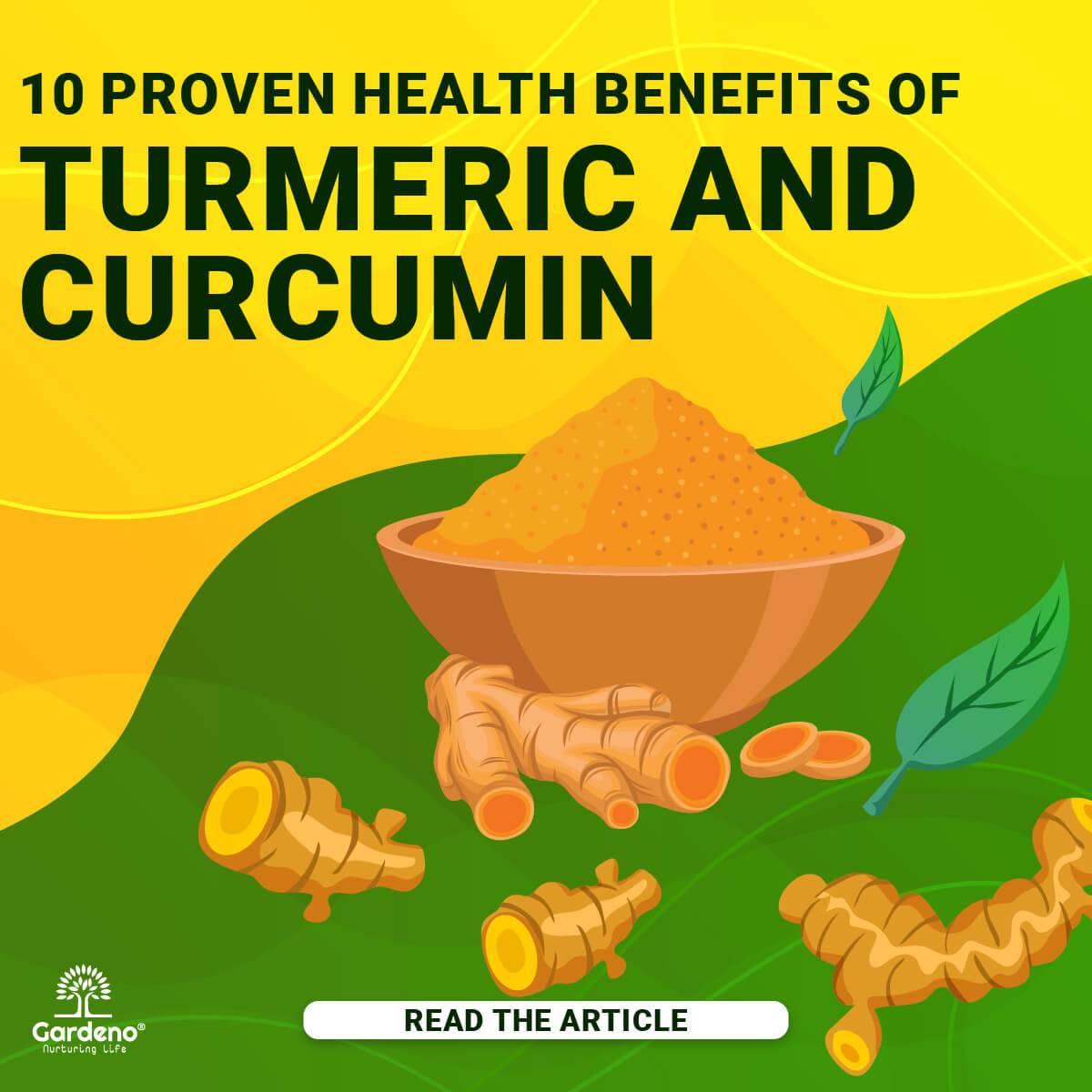

10 Proven Health Benefits of Turmeric and Curcumin
Bitter, warm, and key to the color in most curry powders, turmeric is also known for the various benefits it offers as a nutritional supplement. The secret to its benefits is its key active ingredient, curcumin.
Curcumin has been observed to show anti-inflammatory properties. Studies have also shown that turmeric can potentially lower the risk of heart disease, cancer, help with arthritis, treat depression, and delay aging-related diseases.
Here are just 10 of the benefits in taking turmeric and curcumin:
Turmeric or curcumin has natural anti-inflammatory properties
Studies by the arthritis foundation have shown that turmeric can potentially reduce pain and inflammation from conditions like rheumatoid arthritis and osteoarthritis. Turmeric could also be as effective as ibuprofen in treating pain.
Inflammation is a crucial part of the body’s defense mechanism. However, it can sometimes be harmful to the body when the body mistakenly identifies normal cells as harmful. There are various diseases associated with chronic inflammation such as:
- Diabetes
- Arthritis
- Psoriasis
- Chronic peptic ulcer
- Sinusitis


The arthritis foundation recommends taking up to 500 mg twice daily of curcumin herbal supplements.
Curcumin is often used to help with arthritis
The anti-inflammatory effects of curcumin have meant that people worldwide have been taking curcumin as a dietary supplement for managing arthritis. The study observed people with osteoarthritis who reported a 50% improvement in their condition.
Curcumin can help increase the body’s antioxidants
Antioxidants are known for their various possible benefits in preventing and delaying cell damage. The potential benefits include reducing the chances of illnesses like heart disease and cancer. Research has observed that antioxidants counteract free radicals in the body which are known to cause various diseases.
Curcumin is a powerful antioxidant that can both reduce free radicals and boost your body’s natural antioxidant defenses. One of the advantages of taking curcumin as a dietary supplement is that it has very few side effects.
Curcumin may help in forming new neuron connections
Brain neurons are now understood to divide multiply well into adulthood. Our understanding of brain chemistry is higher than ever and one of the key components of this process is BDNF. Brain-derived neurotrophic factor or BDNF is a growth hormone that is related to the growth of nerve cells.
Animal studies have shown that curcumin facilitates the increase of BDNF levels. BDNF has also been known to help in learning and memory. People with Alzheimer’s and depression have been observed to have lower levels of BDNF.
Studies have shown that there is a potential link between curcumin and BDNF levels, implying that turmeric may help with the growth of neurons and prevent degenerative brain diseases.
Curcumin could be useful in Alzheimer treatment
The best way to combat Alzheimer’s is to prevent it. Scientists have observed that curcumin’s antioxidant and anti-inflammation capabilities can reduce the chances of Alzheimer’s disease. According to the study, curcumin helps in fighting the buildup of amyloid plaques, a feature of Alzheimer’s.
Turmeric can potentially reduce chances of heart disease
Studies in animals have shown that turmeric could prevent heart disease. Curcumin has been observed to reduce fatty deposits in the heart. Curcumin also helps with the quality of the lining of blood vessels.
Heart disease is the leading cause of death in the world. With the various potential benefits observed in curcumin, taking herbal supplements of curcumin could improve your overall heart health.
Curcumin could help in preventing cancer
According to certain studies, curcumin can play role in reducing the risk of cancer. It has been understood to potentially helping with preventing carcinogenesis. Assessments of curcumin show that it might inhibit cancer cell growth.
Turmeric has been shown to help relieve pain
Studies have shown evidence that turmeric could be used as a pain killer. According to a published, peer-reviewed study, Curcumin Domestica seems to be as effective as ibuprofen in treating arthritis-related pain.
Curcumin helps with liver function
A study observed that taking curcumin could block the activation of hepatic stellate and reduce transaminase and insulin resistance. These studies have concluded that curcumin has the potential to help to regress liver fibrosis.
Curcumin could help with delaying age-related diseases
As mentioned above, curcumin has the potential to reduce the risk of heart disease, cancer, and Alzheimer’s. Curcumin has been observed to activate a protein that helps delay cognitive decline in animals. The animals reached an older age and were much fitter for their age.
Adding turmeric dietary supplements to your daily intake has the potential to help you in preventing age-related diseases.
There are few other herbal supplements like curcumin that have such an effect in improving the overall quality of life. The various benefits of turmeric can’t be understated. However, the concentration of curcumin in turmeric is quite low, so it’s recommended to take concentrated curcumin dietary supplements. So, look now for your nearest herbal and vitamin supplement store.
Page Break
References
https://www.arthritis.org/health-wellness/treatment/complementary-therapies/supplements-and-vitamins/supplement-and-herb-guide-for-arthritis-symptoms
https://www.medicalnewstoday.com/articles/301506
https://pubmed.ncbi.nlm.nih.gov/17569207/
https://www.webmd.com/heart-disease/news/20090720/curcumin-may-prevent-clogged-arteries
https://www.sciencedirect.com/science/article/abs/pii/S2212429218303948?via%3Dihub
https://www.frontiersin.org/articles/10.3389/fphar.2020.01021/full#B15
https://www.health.harvard.edu/blog/curcumin-for-arthritis-does-it-really-work-2019111218290
https://www.ncbi.nlm.nih.gov/pmc/articles/PMC6429134/
https://www.ncbi.nlm.nih.gov/pmc/articles/PMC6855174/
http://www.sciencedirect.com/science/article/pii/S0166432812006997



